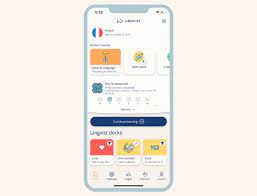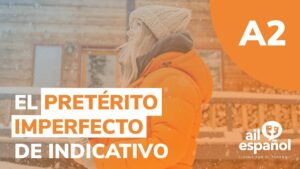An Honest italki Review – Does italki Make You Talk?
Is there anyone else who’s spent way too much time looking for workable language learning apps and using a few simultaneously for weeks on end in order to finally settle with one? If yes, we need to become friends. We also need to find other hobbies. Disclaimer: I settled with three, so the process is still ongoing.
Have I tried italki? Sure!
Is it one of the three apps I've kept? No (weird confession to make right off the bat in an italki review, I know).
Can I recommend italki to language learners? Absolutely!
Students have different preferences based on their personality and the language they’re trying to learn. So, italki can easily be the best choice for some (even if it isn't for me), and here’s why.
Should You Trust My italki Review?
Since I'm sure your parents raised you well and taught you not to trust strangers, here's a minute of self-praise (how else can I prove my language authority?).
I’m fluent in five languages, I have an intermediate command of one, and a beginner's competency in two more.
An ardent traveler and a restless soul, I learned two of them immersively by communicating with native speakers and taking online classes with skilled teachers.
I’ve been teaching three languages at various levels (from primary school kids to MA programs), adapting my approach to students of various linguistic and geographical backgrounds.
You can imagine how difficult it is for language tutors to find language teachers they’d be happy with. I’m a very demanding person, both in terms of how I teach languages and how I’m taught languages.
Without any unnecessary modesty, I’m a crackerjack. So, I can tell you two things:
- italki alone won’t turn you into a language wizard
- italki can be your speaking trampoline if you use it wisely
Keep reading this italki review for more info.
FAQ: Can italki make you fluent?
Italki is one of the best options to explore if a) you’re past the beginner level in your target language, and b) you use other platforms to practice your target language beyond speaking. italki is worth the money and hassle, but it should ideally be complemented with additional resources.
Meet italki!
Headquartered in Hong Kong, italki has been around since early 2007, which makes it one of the oldest and most trusted online language platforms. Initially, italki served as a social website connecting language learners around the world. Nowadays, it's best described as a language learning marketplace that facilitates video-based student-teacher classes.
With more than five million users (approximately 10,000 of them are language tutors) from more than 100 countries, and 150+ available languages, the italki platform is also one of the largest and most beloved in the industry.
Focused on individual one-on-one lessons, italki connects language learners with instructors: professional teachers and community tutors (native speakers). So, you can become both a student and a teacher on italki. I tried this double role (learning a language and teaching a language) and found out I could balance out my expenses, just to stay in the black.
italki operates as a website, but there's also an italki app compatible with both iOS and Android.
italki Website

FAQ: Is italki safe to use?
You don’t need to worry about money or personal details on italki. Your information is protected, and the platform guarantees payment safety. Finding an online language tutor outside the italki platform (e.g., on a language forum or social media) would be much riskier.
What Does italki Offer?
Presentation and User Experience - 9/10
Is it easy to sign up and start using italki? It literally takes you a few seconds to sign up. You type in your username [language_nerd sounds just about right in my case], confirm your email address, and select the new language to learn. You can use the "settings" tab to add other languages down the road.
The platform feels super intuitive, whether you’re a tech-savvy teenager or a non-techy adult finding his way with modern language learning apps. The latter will also appreciate that the italki interface is as plain as it gets. I know we’re not here for glitter and sequins, but I always get hooked on aesthetics (sorry, italki, I’m forced to subtract one point here).
italki Profile

The italki profile is very space efficient. You're not distracted by bright, bouncy animations (unlike Duolingo). I'd call it a minimalist's dream. Everything you see is the list of suggested actions below your personal details:
- Check your italki balance (top it up and use italki credits as money equivalents)
- Refer a friend (earn an extra $10 after they’ve spent their first $20)
- Take a quiz (do one of the trending quizzes on a variety of language-related topics)
- Take a language test (buy it for $30 if you’re not sure about your current level in the new language)
- Download the italki app (for iOS and Android)
- Contact the support team (message them in no time or scan the FAQs right there)
How does it all start? The platform precedes you. It doesn’t give you time to think about where to go next or a chance to leave. Right after you’ve signed up, you get a message encouraging you to book your first lesson. When you click on it, you're redirected to the "find a teacher" tab with numerous search filters for your convenience.
Getting a Teacher

You immediately see the tutor's nearest available slot, rating, lesson and trial lesson prices, languages the teacher speaks, and the regional variety of the language taught. For me, it’s important to know that this teacher is from Venezuela as their accent would differ from a Spaniard’s. No offense to either, but I’d like to go with the latter at this point. Pro Tip: Make sure you’ve mastered one regional variety before moving on to the others, otherwise your accent will be all over the place.
Typically, the app offers too many teachers unless you use filters first (at least for major languages like Spanish). You can then also decide whether you need a professional teacher with qualifications (e.g., Nuria in the image below) or an italki community tutor/native speaker without a degree (e.g., José Alejandro).
Language varieties

Let’s say you settle with Nuria because you a) are looking for someone with a degree and b) appreciate that she speaks English.
You can now do more research on her teaching style, see her text and video introduction, and look into her calendar.
Language Teacher's Profile

Here, you can also check the teacher's statistics and read reviews written by other students.
Disclaimer: People tend to share positive reviews more readily than negative ones (when they’re not anonymous). The review selection will never be 100% accurate (plus, everyone has a unique learning style and taste), but this section is useful as a general guideline.
italki Teacher's Reviews


Is it easy to book a lesson? Super easy, barely an inconvenience. You just click on "book" and fill in the requested details. If you feel you need more info about the new teacher or lesson, use the "contact teacher" button.
Booking a Lesson


You can take two different strategies with teachers on italki:
- Dipping your toes into the trial lessons with as many teachers as possible
- Diving headfirst with the one and only tutor
What’s great in either case is that you have the "my teachers" tab, where all of them remain listed for further reference.
Bottom Line: italki is one of the most intuitive platforms out there. You're also given close to 20 default language options on your profile. So, you'll easily find your way, even if you don’t speak English.
Pro Tip: Set your target language as your default one. You’ll be impressed by how many new phrases you’ll learn from this.
Content Value - 9/10
What languages does italki offer? It’s easier to list the ones it doesn’t. Seriously, you guys, the platform lists 150+ languages. I’m a linguist with two degrees, but I’ve never even heard of some of them. Spoiler Alert: If you’re learning a language as rare as Dinka or Belait, there’s no better place to go.
The platform is speaking oriented, and the quality of your language lessons is largely defined by the italki teachers you pick and the communication the two of you establish. So, there’s no major correlation between the quality of teaching and the particular language (even if that’s one with a different script system/alphabet).
Now, it's self-explanatory that there are more native teachers for popular languages like Spanish or Chinese (than, say, Ukrainian) and, hence, a higher chance to find the right one. I still don’t think you’ll experience major disadvantages studying a less trendy language. P.S.: You won’t be able to make it your profile default language, but that’s not a huge deal.
Disclaimer: italki doesn’t discriminate between languages, but it can't represent them all equally for obvious reasons. Everything depends on 1) how many speakers of a language are out there at large, and 2) how many people are interested in giving online lessons.
Which of the four basic skills does italki focus on? I’m a chatterbox. I love talking in any language where I know more than 10 words (or less). So, I’m a sucker for any language course where I practice speaking. And italki is such a platform, for sure. To be fair, speaking is an essential skill in language learning, so that’s a good thing.
Now, if you need a language beyond using it on a week-long vacation (would anyone get a language learning app for this?), you probably want to learn how to write and read in it too. Will you learn to do this on italki? It depends.
What's great about italki is that the user is in full control. I honestly think that if you’re determined to learn a language holistically and make the most out of this control, you’ll practice all linguistic competencies: speaking, listening, reading, and writing. Spoiler Alert: the platform won’t do that for you, nor will it ensure you get access to this kind of training, specifically.
How to get the most out of learning a language via italki? When you search for teachers on italki, describe your goals and vision of the learning process in as much detail as possible.
Do you want to know how I did it in Spanish? Here’s the abridged version. I used six half-priced trial lessons: three with community tutors and three with professional teachers. I settled with one in each category (guided by the teaching style and the chemistry we had). I was specifically looking for native speakers to schedule lessons and practice speaking via the italki Classroom (video conferencing software).
As for the italki professional teacher, we had a long conversation, where I walked him through what I expected from our online language lessons, and what I wanted as the outcome. As a professional teacher, I’d hate to have a language learner like myself, who teaches me how to teach, but my amicable Spanish tutor seemed to be more amused than annoyed by my requirements. I wanted my first weekly lesson devoted to grammar (with exercises, drills, and all the traditionally boring stuff) and the second weekly lesson focused on reading and writing. We didn’t use the latter with me reading aloud (since my level is higher). Instead, I did home reading and produced essays that would be corrected by my teacher in the italki Classroom. P.S.: With my beginner French, I specifically wanted a reading aloud lesson instead.
The biggest takeaway is to articulate the vision that will make the most of your classes. If you don't have prior experience with language learning, you may just ask the teacher to arrange well-rounded lessons instead of focusing on speaking.
Bottom Line: Play around with italki lessons to find your way. Remember that boring grammar pays off in the long run too.
Learning Content. italki's learning content is fluid in that it varies depending on the teacher, language goals, and the format you choose to follow.
You’re the one in control of the content – you even choose the platform for your video lessons (e.g., Zoom, FaceTime, or italki Classroom). In my experience, the italki Classroom is the least glitchy.
There isn’t much more to italki than the classes themselves and what you make out of them. italki is miles behind Babbel or Duolingo in this regard.
To be fair, you do have access to the italki community, one of italki's free features. You can filter the discussions by language and follow the threads you find interesting (like on Reddit). You can exchange ideas with native speakers and even ask them to correct your comments (the perfect learning format if you ask me). Other students can benefit from you as a native speaker too, so it's a win-win.
italki Community

Would you like to practice listening? You may want to check italki's free podcasts, albeit you'll only enjoy them in popular languages. I got zero results in Māori and only two in Ukrainian.
italki's Podcasts

Then, there’s the questions feature: Pick your language and ask people for answers. Native speakers or knowledgeable italki teachers can help you out in the comments. You can also find language partners here.
italki Questions

italki's Unique Features - 9/10
italki is the pioneer in language tutor marketplaces. Many other platforms around the world just followed in its footsteps. What I still find quite unique about italki is:
You’re in charge. It's true that italki doesn’t hire exclusive teachers – the same people can be employed by both italki and its competitors simultaneously. What's also true is that italki enables you and the language teachers you pick to create as much unique content as you please, follow your own schedule, and agree on your own prices.
italki's language base. Is there another language learning platform with 150+ languages and 10,000+ language teachers? italki doesn’t discriminate against anyone based on their native language. Instead, the platform encourages you, be you a native Māori or Basque speaker, to share your skills and keep your endangered language alive via a language exchange.
Instant booking. With some language tutors, you can book instant italki lessons (the class begins in 30 minutes). There used to be tons of bad italki reviews before they introduced this option (way to go, italki!). As a highly spontaneous person who learns a new language out of passion rather than need, I find instant booking highly rewarding. You’d never believe how many times I’d get the "I need a French lesson right now"/"it’s high time I started a new language" epiphany at 2 a.m. when I was pregnant (will my kids be polyglots now?).
italki's Instant Lessons

italki's Soft Spots - 8/10
It’s hard to criticize italki (yes, even for such a hypercritical person as I am). We, users, are partly responsible for picking the wrong teachers (we do get trial lessons after all).
But I do have to voice some critical points in this italki review, so here they are:
italki doesn’t control price exploitation. For users, it might seem like a bonus that some 3rd world-country teachers offer lessons priced at $3/hour. But that’s low-wage exploitation and a lack of fair competition. I would love for italki to launch a price regulation mechanism, even if that means I’d have to pay more when I schedule lessons. P.S.: I never trust either underpriced or overpriced tutors and try to keep to the golden mean.
italki doesn’t guarantee teacher quality. I have no idea whether anything can be done about it. I mean, that’s always sort of a lottery whether you’ll click with the instructor. When it comes to the category of professional teachers, italki at least checks their qualifications (although italki doesn't take responsibility for their teaching styles or for whether they prepare lessons professionally). With community tutors, we're also taking some risk: anyone can present themselves as a native and start offering their services. Does the platform even guarantee this person is a native? Nope.
italki doesn’t encourage additional learning. italki and its users would benefit from some language resources and extras. Offering teacher-student lessons is great, but I procrastinate my time away on the subway – the time I could wisely use to fill in the gaps or match words and pictures. Now, as much as we all like criticizing such activities on Duolingo, they do their work in helping us memorize vocab and get up to speed with grammar.
Bottom Line: italki is often cited as the platform to produce fluency in a foreign language. But let’s be honest, that’s if - and only if - you do your homework. Consider complementing italki with another language learning app.
How Much Does italki Cost? - 10/10
You don’t buy any subscription plan to join italki, but the platform charges a processing fee when you get italki credits (equivalent to USD). Say, you want 10 credits, you’ll need to spend $0.70. Tip: The more credits, the lower the fee (e.g., $4.5 for 100 credits).
What you should remember is that you can't withdraw credits – you’ll need to use them up paying for italki lessons. In a way, it’s even better this way – the money sitting in your account motivates you to take more lessons (or to start learning other languages with italki).
Prices. The lesson prices vary from teacher to teacher: $3 to $80. Again, beware of the low-wage exploitation if you lean towards the lower end. Also, keep in mind that expensive doesn’t equal quality if you choose the higher end.
I always try to be fair: it bugs me (as a language tutor) that some people are ready to work for nothing, while others think their qualifications automatically make them superior. Disclaimer: I had a fantastic experience with no-degree language partners as well as atrocious classes with decorated professors.
italki's Pricing

italki Alternatives - 9/10
Regardless of how good or bad something is, there’s always at least one alternative. What are italki's chances against the competition?
- italki vs Preply. These are siblings. No, actually, they’re twins operating identically. If you compare the two, you get the feeling that one of them copied the other (most likely Preply was the cheater as it was created five years later). I can't say one beats the other, but Preply seems more concerned about your (customer) satisfaction: you get a free lesson with a new tutor in case you’re completely disappointed with the one you had.
- italki vs Lingoda. Lingoda is another platform that emulates the italki model. If italki is a relaxed pal, Lingoda is a strict teacher. Not that the latter is better or worse, but it offers a structured curriculum. Do you feel like being part of a school class? Then go for Lingoda. Do you want an individual informal lesson? Then opt for italki. P.S.: Lingoda has a rather limited selection of languages, so it’s only an option for some people.
- italki vs Chatterbug. Another platform that follows its own curriculum and features complete online language courses instead of sporadic online classes is Chatterbug. That’s what distinguishes it from italki and aligns it with Lingoda. On Chatterbug, you can practice a foreign language beyond tutored lessons – it offers flashcards, exercises, and other fun activities. What’s the catch? While Chatterbug's a great choice, it only offers English, German, Spanish, and French.
- italki vs Baselang. You need this info if you’re into Spanish, the only language Baselang features. Now, as a learner of Spanish, I’m in love with the platform. For a fixed monthly fee (of around $150), I get unlimited Spanish lessons. Of course, it only pays off because it fits my learning style and I take many classes. I'd definitely recommend it to get a quick boost from pre-intermediate to advanced.
Note: speaking of flashcards, if you want to know the best five dedicated flashcards apps for language learning, then you will find them here, "The Five Best Flashcards Apps for Language Learning - Are They Good Enough?" These can be a nice complement to learning on italki.
FAQ: Is teaching on italki worth it?
As an italki teacher, you can easily find students and enjoy much freedom. You set your own prices, decide how many lessons a week you want to teach, and pick the most convenient video platform. It’s a very flexible job that’s great as an additional source of income or even a primary workplace for many teachers!
My Final Score - 9/10
The italki app is one of few out there that gets a… 9/10 from an overly critical person like me (I wasn’t bribed by italki, no worries).
So, let’s run over this final pros/cons list to see what I enjoy and what turns me off.
What do I love about italki?
- Its vast language selection (150+)
- The largest tutor base on the market (10,000+)
- Options to easily filter the teacher selection
- The user’s control
- The focus on speaking with people
- Cultural input from native speakers
- The choice of budget-friendly and pricy alternatives
- Community features to practice language use
- Payment safety
- A discounted trial lesson from most tutors
- A user-friendly website
- The instant booking option
What makes me turn my nose up at italki?
- No guarantee of quality for every specific teacher
- No clear-cut balance of price/quality
- Some price boosts along the way
- A harsh flood of notification emails
- Requests to evaluate every lesson
- Technological glitches with videos
Are you convinced you need to get italki? Then don’t waste any more time and subscribe here.
italki Review Bottom Lines
italki is one of those platforms that brings you as close as it can get to becoming fluent, just an arm’s length. But don’t forget it requires a lot of your own input and decision making to succeed.
Bottom Line 1: Get italki if you’re no longer satisfied with apps like Babbel or Duolingo and feel you’re ready to move up the language hill.
Bottom Line 2: Make sure you don’t put all your eggs into one italki basket. Back your tutor-led experience up with movies and YouTube (probably also get FluentU), do grammar exercises (or ask your italki tutor to focus on this aspect more), follow language learning blogs and read books in the original (suggest a community book club discussion or commit to reading a book every month and discussing it with your tutor).
Bottom Line 3: Don’t become too devoted to italki. We’re working on our Flying Languages app, and it’ll be a language bomb! It’s going to have it all, so you won't need to sacrifice one thing for another. Stay tuned!
FAQ: How do I get more out of italki?
With any language learning platform, it's important to be creative and use it outside the box. To make italki worth the money you spend, try the following:
1) Use the italki free resources (especially the communication with language exchange partners)
2) Let the new teacher on italki know if you want a change of strategy or focus – don’t be shy
3) Be active in community discussions to boost your skills



